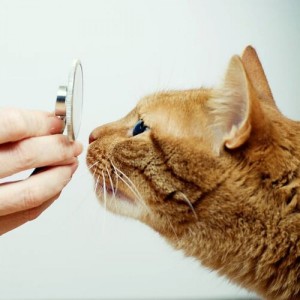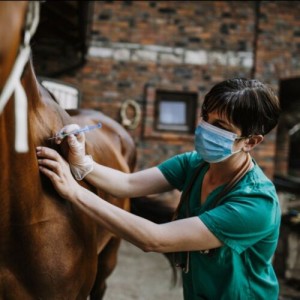Theileria orientalis in cows and bulls in New York state
The Animal Health Diagnostic Center (AHDC) recently diagnosed Theileria orientalis, genotype Ikeda, in multiple cows and bulls in a cow-calf herd in New York state (NYS) which has a history of purchasing cattle from other regions of the state and country.
Bovine infectious anemia, caused by Theileria orientalis, is an emerging disease of cattle in the United States (U.S.).5 Theileria orientalis is a tick-borne hemoparasite capable of causing hemolytic anemia, pyrexia, icterus, malaise, ill thrift, sporadic abortions and death in all ages of cattle.6 There are three main genotypes of T. orientalis circulating in the U.S. that predict pathogenicity: Ikeda (associated with the most severe clinical signs), Chitose (mild or no clinical signs) and Buffeli (no clinical signs).1 Surviving cattle are infected for life and infection (especially with the Ikeda genotype) can be economically devastating due to decreased milk production, reproductive losses, and morbidity and mortality.3 Carrier animals are capable of recrudescing clinical disease during periods of stress. On average, infection with T. orientalis, Ikeda results in 5% mortality, but naïve herds typically experience higher mortality rates (even up to 90%) while endemic regions often see lower rates. The primary tick vector is Haemaphysalis longicornis (Asian longhorned tick) which emerged in the U.S. in 2017.5 In addition, there is a risk of mechanical transmission occurring due to biting flies or lice, or iatrogenic transmission due to shared needles or other blood-contaminated equipment.2
Diagnosis is typically achieved with PCR testing of EDTA whole blood samples (or the spleen in postmortem situations). Additional PCR testing to characterize the genotype can then be performed. Piroplasms in red blood cells may be detected on blood smear examination, but this method is not as sensitive as PCR and does not allow for identification to the genotypic level. Coinfections with Anaplasma marginale4 and bovine leukosis virus (BLV) are common with theileriosis.
Theileria orientalis is reportable in NYS. There is no effective drug approved for use in food animals for theileriosis in the U.S., nor is there a vaccine, and vector control is often infeasible. The best strategy for mitigation is to avoid introducing the parasite to naïve herds by testing animals prior to purchase or movement.
Source: https://www.vet.cornell.edu/


.jpg)











List
Add
Please enter a comment